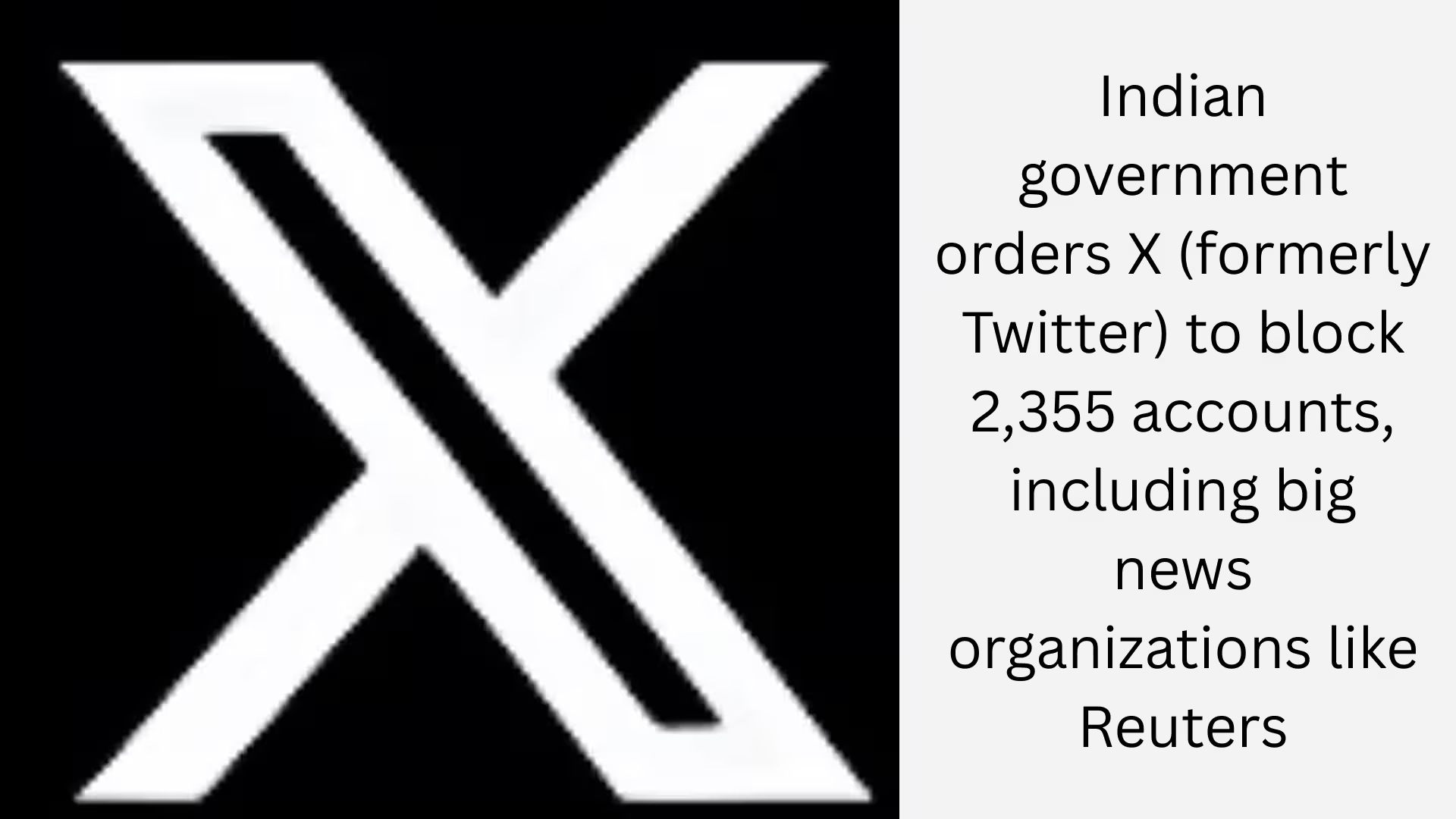New Delhi – Elon Musk-owned social media platform X (formerly Twitter) made a shocking disclosure on July 3, 2025, saying that it received orders from the Indian government to block 2,355 accounts, including accounts like the reputed international news agency Reuters and ReutersWorld. This action was taken under Section 69A of the IT Act.
This development has sparked a widespread debate in India about press freedom, social media control, and government interference. According to X, it was mandatory to block these accounts within an hour, and no reason was given. If the order was not followed, criminal action could be taken.
What is Section 69A of the IT Act?
Section 69A of the IT Act gives the Indian government the power to order the removal of any online content in the interest of national security, public order, or sovereignty. This law has been in force since 2009, and its scope is wide.
Under this section, the government can direct internet service providers, social media companies, and websites to block any information. However, this process has long been criticized for a lack of transparency and the absence of judicial review.
X’s big statement: Threat to press freedom
X’s Global Government Affairs handles said:
> “We are extremely concerned about the ongoing press censorship in India. These blocking orders pose a serious threat to journalism. X is considering all legal options.”
X also pointed out that since they are not present in India, Indian law does not allow them to challenge these executive orders in court. They urged the affected users to resort to the court themselves.
Government response and clarification
The government initially denied any role in blocking Reuters’ account. Government officials said:
> “The Indian government has not given any order to block Reuters’ account. We are working with X to resolve the issue.”
Despite this clarification, Indian users see this message when they try to access Reuters’ X account:
> “This account has been blocked in India in response to a legal request.”
X says the blocking may have been due to a misinterpretation of older orders.
Which accounts were banned?
X did not specify which of the 2,355 accounts were banned, but the list included:
Reuters (main account)
ReutersWorld
Political activists
People associated with civil rights organizations
Several journalists and reporters
International institutions and think tanks
However, accounts such as Reuters Tech News, Reuters Asia, Reuters China, and Reuters Fact Check are still available in India, making it clear that the ban was imposed on select accounts, not the entire agency.
International response and concern
The incident resonated internationally as well. Several human rights organizations and media freedom advocates criticized India, saying:
> “Such decisions not only undermine press freedom, but also affect India’s democratic image.”
Press freedom watchdogs in the United States and the European Union also issued statements saying:
> “A democracy like India is not expected to ban international media organizations without due process.”
Was it just a technical glitch or deliberate censorship?
According to X, the government issued the order and then requested to unblock Reuters and ReutersWorld. This indicates that the government either issued the order in haste or the process of issuing the order was not transparent.
It is possible that the government intended to remove some other content, but by mistake, media accounts like Reuters got blocked. However, there is no room for error in such sensitive actions, especially when it comes to independent journalism.
X’s legal constraints and strategy
Social media companies operating in India are required to follow local laws. If the order given by the government under Section 69A is implemented without undergoing judicial review, then social media companies cannot oppose it even if they want to.
X also clarified that it is unable to give a legal challenge because its representative structure in India is limited. He asked the users to approach the court themselves.
Social media control in India: A growing trend
In the last few years, control over social media in India has increased. By the central government:
Orders to remove content in the name of fighting fake news
Ban on religious or political rhetoric
Control over posts related to protests or movements
Such steps show that the government is taking a tough stand on social media, although critics say that it can also be misused.
Criticism from opposition parties and media organizations
Congress, AAP, and other opposition parties have criticized the government over this development. They said that this is an attempt to impose silence in democracy.
At the same time, organizations like the Editors Guild of India, the Press Club of India, and Reporters Without Borders have demanded transparency from the government.
Want to grow your website organically? Contact us now
Future direction: Is media freedom in danger?
This incident has raised the question of whether media freedom in India is gradually shrinking. If even international institutions like Reuters can be blocked without any clear reason, then how safe are independent journalists and small news portals?
Experts believe that if there is no judicial review of such orders, then press freedom may become more narrow in the coming times.
Conclusion: Need for transparency and accountability
In a democracy like India, social media and press freedom are one of the basic pillars of democracy. This disclosure by X raises many serious questions about the digital censorship policy of the Indian government.
If the government’s orders are not transparent, then it can affect credibility, democratic values , and international image. The government should strengthen the system of transparency and judicial review, along with control over social media.
Also read:
Cuddalore rocked by school van accident: Two students dead, several injured
Main accused of Gopal Khemka murder case killed in Patna encounter
PM Narendra Modi arrives in Cyprus, begins three-nation visit to Canada and CroatiaRead original News: freepressjournal


